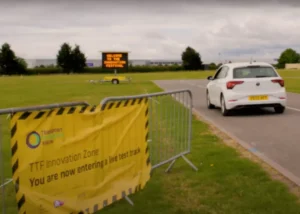BT has announced it’s working with Cambridge-based start-up Nu-Quantum and other research organisations as part of a world-first trial of end-to-end quantum-secured communications for 5G and connected cars.
The company says its AIRQKD trial uses its expertise in building quantum-secure networks using an essentially un-hackable technique called Quantum Key Distribution which shares encryption ‘keys’ between locations using a stream of single photons. It’s then combining this with other new techniques for applying quantum security to mobile devices, developed by Nu-Quantum along with Angoka and Duality.
The trial, which will run for 36 months, is funded with £7.7M by the Quantum Technologies Challenge, led by UK Research and Innovation. It will for the first time combine Quantum Key Distribution over fixed fibre and free-space networks with quantum-enhanced security chips in mobile devices.
In combination, these technologies will be used to deliver what BT says is an ultra-secure link between connected 5G towers and mobile devices, as well as to connected cars, in conjunction with the Warwick Manufacturing Group at Warwick University.
The new trial builds upon BT’s current fibre-based testbed for QKD, which runs between Cambridge and the BT Labs at Adastral Park on the outskirts of Ipswich (pictured). BT says it’ll pave the way for the development of a wide range of quantum-secured use-cases, for applications where ultra-security of data transfer is especially important.
Cambridge-based Nu Quantum, one of the UK’s newest quantum technology start-ups, will be the provider of quantum components: small modules capable of manipulating the faintest light signals (single photons of light) to generate and communicate absolutely secure quantum encryption keys.
(Picture – Adastral Park, courtesy BT)
























